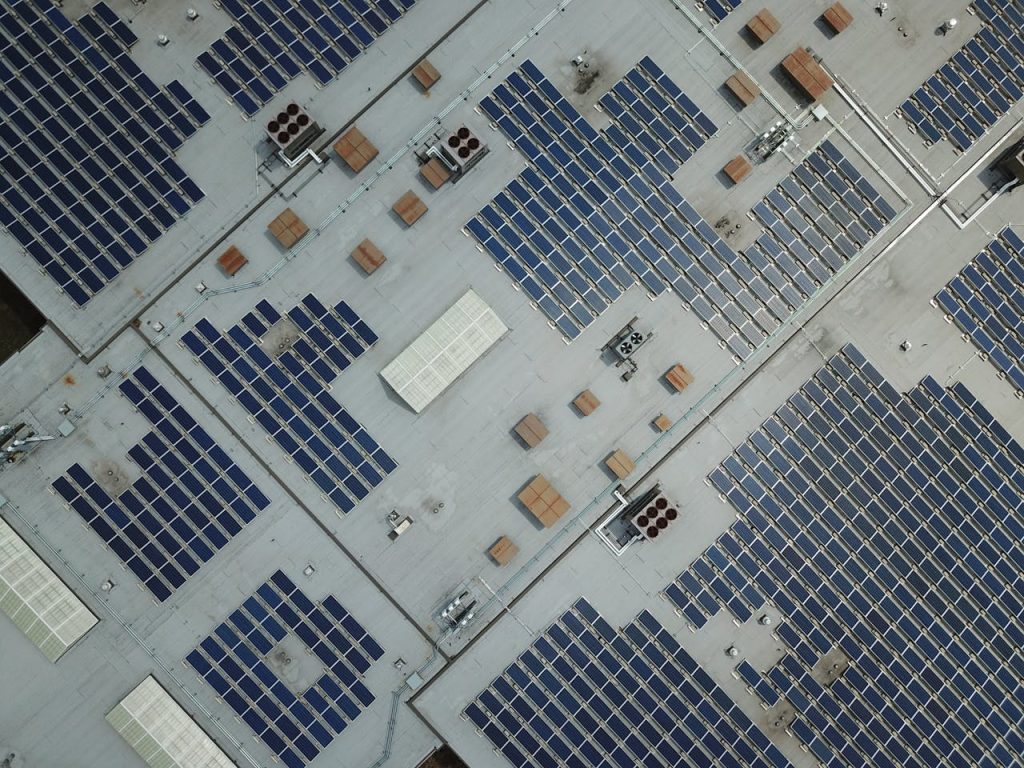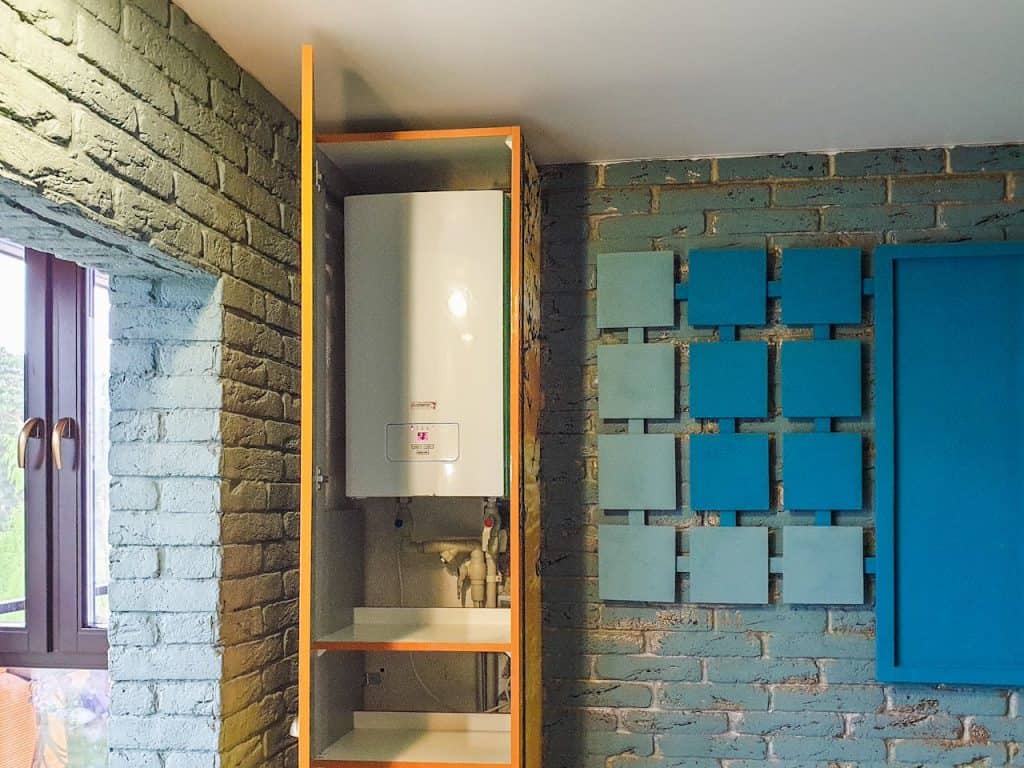- How the renewable energy sector’s growth offers new opportunities for HVAC and plumbing companies.
- What factors are driving the rapid expansion of renewable energy, particularly solar and wind power.
- Why HVAC and plumbing companies should consider integrating renewable technologies into their services.
- How businesses in the HVAC and plumbing sectors can benefit from the increasing demand for solar energy solutions.
- Why understanding consumer trends towards sustainable solutions is vital for business growth in the renewable sector.
In the rapidly evolving landscape of the renewable energy sector, there lies a vast array of untapped business opportunities, particularly for HVAC and plumbing companies.
As the world increasingly turns its focus towards sustainable energy solutions, these industries find themselves at a critical juncture where innovation and environmental responsibility intersect.
Renewable Energy Sector: An Overview
The renewable energy sector has witnessed unprecedented growth over the past decade.
This surge is primarily driven by global recognition of the urgent need to reduce carbon emissions and mitigate climate change.
Governments worldwide are increasingly supporting renewable energy initiatives through subsidies, tax incentives, and policy frameworks, creating a fertile ground for businesses to thrive.
According to the IEA (International Energy Agency) 2023 saw a 50% increase in renewable power capacity. They reported a trend in wind and solar power, seeing them generate more electricity than even hydropower by 2024.
Solar photovoltaic (PV) installations have skyrocketed, with the International Energy Agency (IEA) reporting that solar PV capacity additions are set to increase by 17% in 2022.
The economic viability of renewable energy sources has improved dramatically, making them increasingly competitive with traditional fossil fuels.
The cost of solar energy, for instance, has decreased by 89% since 2009, according to the International Renewable Energy Agency (IRENA).
For HVAC and plumbing companies, this shift offers a unique opportunity.
The integration of renewable technologies into building designs and energy systems is becoming a norm rather than an exception.
There is a growing demand for professionals who can install, maintain, and upgrade renewable energy systems.
Companies that can provide these services are poised to capture a significant market share.
Renewable energy acquisitions can be a wise move for those looking to expand their portfolio.
This approach not only diversifies your business interests but also aligns your company with the future of sustainable energy solutions.
Business Opportunities In The Renewables Sector

The solar energy industry, with its rapid technological advancements and increasing market demand, presents a lucrative avenue for businesses in the HVAC and plumbing sectors to expand and diversify their portfolios.
Let’s look at two key components – namely solar panels and solar roofs.
Solar Panels
At the heart of the solar energy industry are solar panels, a technology that has undergone significant evolution in recent years.
The efficiency of solar panels has improved dramatically, making them more attractive for both residential and commercial use.
Innovations such as bifacial solar panels and solar tracking technology are pushing the boundaries of how efficiently solar energy can be harnessed.
The market trends in the solar panel industry are highly encouraging. According to the Solar Energy Industries Association (SEIA), the U.S. solar market is expected to quadruple by 2030.
This growth is not just limited to the United States; globally, the solar energy market is projected to grow at a compound annual growth rate of around 20.5% from 2019 to 2026.
The competitive landscape is becoming increasingly diverse, with numerous players, from start-ups to established corporations, vying for a share of the burgeoning market.
Solar Roofs
Solar roofs are another area where significant strides have been made.
Integrating solar technology directly into roofing materials, solar roofs are becoming a popular choice for new real estate projects.
This trend is not just about energy efficiency; it’s also about enhancing property values.
Homes equipped with solar roofs are seen as more desirable, often fetching higher prices in the real estate market.
For businesses in the HVAC and plumbing sectors, the rise of solar-powered homes represents an opportunity to venture into new service areas. Through renewable energy acquisitions or partnerships with companies specializing in solar roof installations, businesses can expand their offerings, tapping into a market that aligns with the growing consumer preference for sustainable living solutions.
The Strategic Advantages of Business Acquisition in Renewable Energy
Acquiring or investing in renewable energy businesses, particularly in the solar sector, offers strategic advantages for HVAC and plumbing companies.
First, it provides an immediate entry into a fast-growing market.
This move can diversify revenue streams and reduce reliance on traditional HVAC and plumbing services, which are often subject to seasonal fluctuations.
Moreover, investing in renewable energy aligns companies with the broader global movement towards sustainability, enhancing their brand image and appeal to environmentally conscious consumers.
It also positions these businesses to take advantage of potential government incentives aimed at promoting renewable energy.
For HVAC and plumbing companies looking to enter the renewable energy market, several key considerations should be addressed.
Understanding the regulatory landscape is crucial, as this can impact both the feasibility and profitability of renewable energy projects.
Additionally, companies need to assess the compatibility of renewable energy technologies with their existing service offerings and expertise.
Training and development may be necessary to equip existing staff with the skills needed to install and maintain solar energy systems.
Finally, evaluating the financial aspects of acquisition or investment, such as the initial costs, potential returns, and the time frame for profitability, is essential.
A thorough market analysis and a well-crafted business strategy are indispensable tools in navigating these new waters.
Impact of Renewable Energy on HVAC Companies

Now let’s look at specific opportunities for HVAC companies in the renewable sector.
One of the most significant advancements is the integration of solar-powered heating and cooling systems.
| Read more: Why Buying an HVAC Company is a Great Idea |
These systems use solar panels to capture energy from the sun, which is then used to power HVAC systems.
This approach not only reduces reliance on traditional energy sources but also decreases operational costs and carbon footprints.
Solar-powered HVAC systems represent a significant shift in how buildings are cooled and heated.
Companies in the HVAC sector must adapt to this change by developing expertise in installing and maintaining these systems.
There’s a growing demand for professionals skilled in renewable technologies, and HVAC companies that develop these skills can gain a competitive edge.
For HVAC businesses, adapting to renewable energy trends involves investing in training and development to ensure that their technicians are equipped with the necessary skills.
Moreover, they might consider partnering with renewable energy firms or expanding their service offerings to include solar panel installations.
Impact of Renewable Energy on Plumbing Services

In terms of plumbing services, renewable energy is primarily influencing water heating solutions.
The adoption of solar water heaters is becoming increasingly common, offering a sustainable alternative to traditional water heaters.
These systems harness solar energy to heat water, which is then stored in insulated tanks for use.
Plumbing companies can capitalize on this trend by offering eco-friendly plumbing services and products, such as installing and maintaining solar water heaters.
There’s a growing consumer interest in sustainable living practices, and companies that provide these services are well-positioned to meet this demand.
Businesses often see an increase in customer interest and loyalty due to their commitment to sustainability.
They may also qualify for government incentives aimed at promoting renewable energy, which can offset the costs of training and equipment.
For instance, a plumbing company specializing in solar water heater installations might collaborate with local governments or non-profits to provide sustainable solutions to underserved communities.
This not only boosts their business but also contributes positively to the community and environment.
Challenges and Considerations in the Renewable Energy Sector
The renewable energy sector, while burgeoning with opportunities, also presents unique regulatory challenges and policy considerations.
Businesses keen on venturing into this domain must navigate a complex landscape of laws and regulations, which can vary significantly across different regions and countries.
Regulatory Challenges and Policy Considerations
One of the primary regulatory challenges is the ever-evolving nature of policies and incentives related to renewable energy.
Governments frequently update their renewable energy policies, which can impact subsidies, tax incentives, and regulatory compliance requirements.
These changes can affect the financial viability and planning of renewable energy projects.
There are also technical standards and safety regulations specific to renewable energy installations.
Compliance with these standards is critical to ensure the safety and efficacy of renewable energy systems.
Businesses must stay informed and adapt to these regulations to avoid penalties and ensure operational success.
Potential Obstacles and Risks
Involvement in the renewable energy sector comes with its own set of risks, as well.
The initial investment costs for renewable energy technologies can be significant.
There’s also the risk associated with the reliance on government incentives, which can change based on political climates.
Furthermore, the intermittent nature of renewable sources like solar and wind can pose challenges in terms of energy reliability and storage.
Mitigation Strategies
To navigate these challenges, businesses should:
- Stay Informed and Compliant: Regularly update knowledge about regulations and policies in the renewable energy sector. Compliance is key to avoiding legal issues and taking advantage of government incentives.
- Risk Management and Diversification: Diversify investments and services to mitigate the risks associated with any single renewable energy technology or policy change.
- Adopt a Flexible Business Model: Be prepared to adapt to changes in renewable energy policies and market trends. Flexibility can help businesses take advantage of new opportunities as they arise.
Consumer Trends and Demand in Renewable Energy
In the context of home service companies, consumer trends are increasingly leaning towards sustainable and eco-friendly solutions.
This shift in consumer preferences provides a significant opportunity for businesses to align their offerings with the growing demand for renewable energy solutions.
Today’s consumers are more environmentally conscious and are seeking sustainable solutions for their homes.
This includes a preference for solar energy systems, energy-efficient appliances, and eco-friendly building materials.
Home service companies that cater to these preferences are more likely to attract and retain customers.
Aligning Offerings with Consumer Demands
Businesses can align with these trends by:
- Expanding Services: Include installation and maintenance of renewable energy systems like solar panels and solar water heaters.
- Eco-Friendly Solutions: Offer energy-efficient products and services that reduce the environmental impact of homes.
- Educational Outreach: Educate consumers about the benefits of renewable energy and how they can make their homes more sustainable.
Effective marketing and branding are crucial in attracting environmentally conscious customers. Businesses should:
- Highlight Sustainability: Emphasize the environmental benefits of their services in marketing materials.
- Leverage Digital Platforms: Use social media and online marketing to reach a broader audience interested in sustainability.
- Build a Green Brand Image: Establish the company as a leader in sustainable practices to attract customers who prioritize environmental responsibility.
While the renewable energy sector presents various challenges, it also offers vast opportunities, especially for businesses willing to adapt and align with consumer trends.
By effectively navigating regulatory landscapes and responding to consumer demands, businesses can capitalize on the growing trend towards sustainability.
Conclusion
The renewable energy sector has very quickly risen in demand, burgeoning with technological innovation it presents many opportunities for business growth and diversification, particularly for those in the HVAC and plumbing industries.
The advent of solar panels and solar roofs, along with the rising consumer preference for sustainable solutions, has paved the way for these industries to venture into new, promising terrains.
For businesses in these sectors, embracing renewable energy technologies is not just a strategic move to stay ahead in a competitive market; it represents a commitment to sustainability that resonates with the values of the modern consumer.
By adopting eco-friendly solutions and practices, these businesses can not only enhance their appeal to environmentally conscious customers but also contribute meaningfully to global efforts to combat climate change.
If you’re an acquisition entrepreneur looking to jump into the renewable market by purchasing an existing HVAC or plumbing business, consider applying for Acquira’s Accelerator program. Our MBA-level training can provide you with the skills and know-how to become the owner-operator of a seven-figure cash-flowing business in as little as seven months.
Fill out the form below but space is limited!
Key Takeaways
- Renewable energy’s growth, especially in solar and wind, opens new avenues for HVAC and plumbing companies.
- Reduction in solar energy costs and global shift towards sustainability are key drivers of this sector’s expansion.
- Solar panel advancements and market trends are reshaping opportunities within the solar energy industry.
- The integration of solar technology in building projects, like solar roofs, is enhancing property value and energy efficiency.
- Navigating regulatory challenges and aligning with consumer sustainability trends are crucial for businesses entering the renewable energy market.
Acquira specializes in seamless business succession and acquisition. We guide entrepreneurs in acquiring businesses and investing in their growth and success. Our focus is on creating a lasting, positive impact for owners, employees, and the community through each transition.



